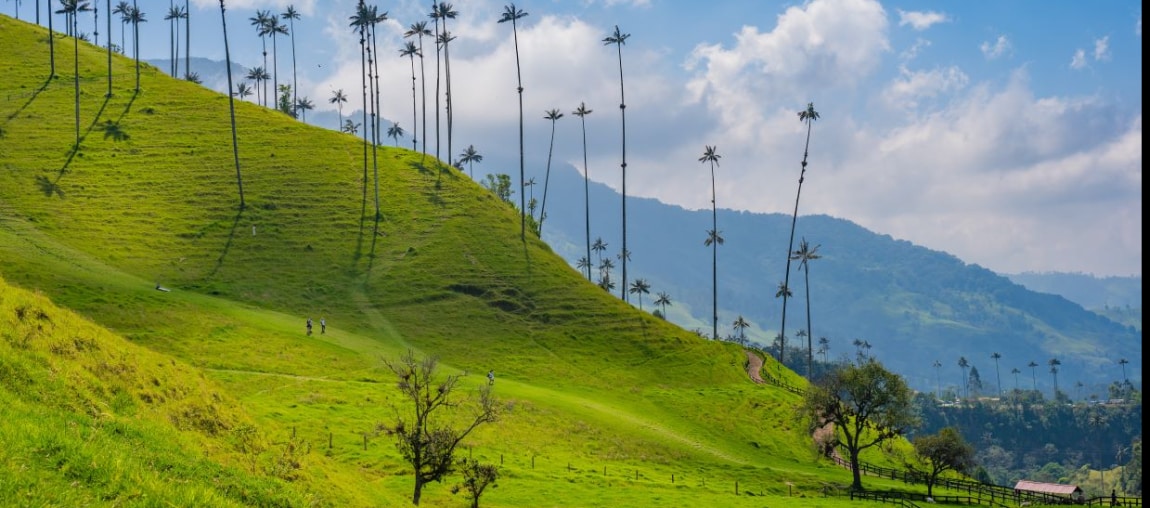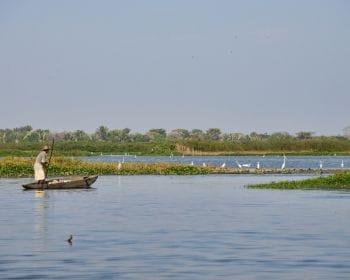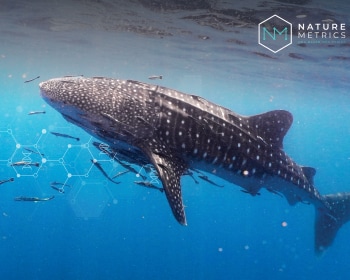A summit on “making peace with nature"
The Chairperson of COP16, Susana Muhamad, minister of the environment of Colombia, pointed out the urgency of making peace with nature and of turning words into deeds. The first cause of the rapid and massive collapse of biodiversity is human activities. The call for "peace with nature" means no longer harming nature through our activities and, hence, changing the way we consume, so that we reduce our impacts and our exposure to the use of natural capital. It is also a recognition that nature is a source of life, of resilience to the challenges of climate change, and therefore a factor of peace. The holding of this COP in Colombia also made it possible to highlight the challenges facing countries with rich biodiversity that is being severely threatened, including the countries in Latin America and the global South.
What are the implications from COP16? It means that countries must submit clear plans that align national initiatives with Global Framework objectives, linking nature to climate action, recognising the importance of a socially just ecological transition, and including the role of Indigenous peoples and local communities as actors and beneficiaries of biodiversity conservation and sustainable management. It is also about giving countries the means to act – by mobilising public funding, reforming economic incentives that are harmful to nature, mobilising private financing, and, for countries that need it, providing development aid. As a reminder, the Global Framework set 4 goals to meet by 2050 and 23 targets to meet by 2030 to stop and reverse the depletion of biodiversity by restoring and safeguarding ecosystems and creating a society “in harmony with nature”.
The COP in practice
The Colombian organisers aimed to be pioneers of a “COP of the people”. For this purpose, they set up a green zone, open to the public, with round table discussions, concerts and stands to encourage citizen reflection and participation in seeking solutions for protecting and preserving biodiversity. As in previous editions, entrance into the blue zone was for member-countries’ official delegations, accredited observer groups (including youth organisations, local communities, Indigenous peoples, scientific research actors, and private and financial sectors), representatives of multilateral organisations and accredited media. It was the venue for official negotiations, but it also included a rich programme of parallel events featuring a great deal of work and initiatives supporting the GBF.
BNP Paribas’s delegation consisted of experts from the Company Engagement department: Camille Maclet, Biodiversity Expert, Antoine Sire, Senior Advisor – Social inclusion & Impact Economy; Sébastien Soleille, Global Head of Energy Transition and Environment ; and BNP Paribas representatives in the Americas, Maria Camila Bernal, Head of Sustainable Finance and ESG, CIB Hispanic Latam, Hervé Duteil, Chief Sustainability Officer, Americas, and Jorge Valderrama, Country Head for Colombia. These six representatives were asked to take the floor at 24 events, 15 in the green zone and nine in the blue zone.
Mixed results
Several important agreements were reached at Cali, including:
- A newly created “Cali fund” under the wing of the United Nations, to which companies could make matching contributions, while generating profits from digitising genetic data of plants and animals in developing countries. Such data are used in the agro-food, cosmetics, and pharmaceutical sectors, among others. The Fund aims to ensure that the financial resources raised are shared equally between companies and developing countries.
- The recognition of the role of Indigenous peoples and local communities in protecting biodiversity with the adoption of Article 8(j) and the establishment of an official and standing representational body at UN negotiations on biodiversity.
- The importance of the oceans was stressed in marine biodiversity resolutions, with an agreement reached on the procedures for creating protected marine environments.
However, COP16 did not reach a consensus on modalities for a multilateral financing mechanism for conservation and restoration of nature in the global South, through which 25 billion dollars a year would be mobilised in 2025 and 30 billion dollars a year in 2030 in development aid directed towards the conservation, restoration and sustainable management of biodiversity. Nor did CBD parties manage to agree on the procedure for assessing the actions implemented to comply with the Kunming-Montréal agreement. By the end of COP16, only 44 out of 119 countries (including France) had submitted their National Biodiversity Strategies or Action Plans (NBSAPs).
So stay tuned for more news. The next COP will take place in Armenia in 2026. Between now and then, two climate COPs will have taken place, addressing biodiversity through the lens of climate change: COP29, 11-22 November in Azerbaijan, and COP30 which is expected in November 2025 in Brazil, a country with natural, economic and social challenges relating to climate and biodiversity, and the country that adopted the Convention on Biological Diversity and the United Nations Framework Convention on Climate Change at the Rio Summit in 1992.
An edition of Perspectives on freshwater
Droughts, flooding, water shortages, etc. There are many challenges involving water. With access to water having been declared a fundamental right by the UN, how are we to best preserve and share this resource? How do we protect ourselves from risks arising from climate change? The banking sector has a key role to play in raising its clients’ awareness of water-related risks and in financing the necessary adaption measures. Find out more about freshwater challenges and innovative solutions in the latest edition of Perspectives, by the Network of Experts in Sustainability Transitions (NEST).



